Donovan Erasmus, 21 | Aspiring entrepreneur, nurseryman and grower of plants | Research Writer ■ 𝐒𝐨𝐮𝐭𝐡 𝐀𝐟𝐫𝐢𝐜𝐚 ■ This blog serves as a foundation for my personal research and all related subjects.
Don't wanna be here? Send us removal request.
Text
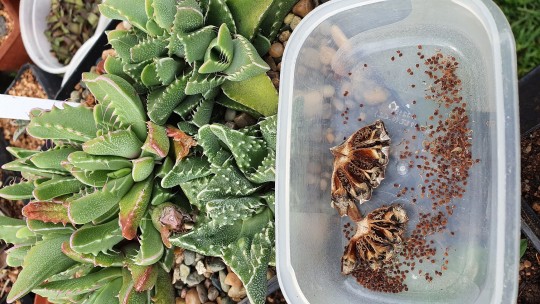
2/2
Faucaria seed production. Planted two different species, and three seperate plants in this large container. The idea was for them to pollinate eachother and hopefully produce some seed for the nursery. They are thriving and getting along nicely.
#melobotanics#south africa#plantblr#horticulture#succulents#botany#germination#plantblog#cactus#cultivation#gardenersofinstagram#gardening#instadaily#gardeners on tumblr#gardenerslife#cultivate#seeds#succulents and cacti#succulentsofinstagram#nurseryman#tiger jaws
28 notes
·
View notes
Text
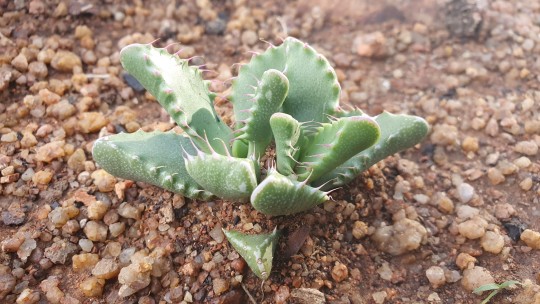
1/2
Faucaria species, as with many varieties are individually described on the basis of slight variations in the leaves. Originally found in the Eastern Cape and encountered into the Little and Great Karoo of the Western Cape Province, these little succulents form clumps and present a perfect candidate for a patio pot plant. Flower colours range from yellow, white and pink.
#faucaria#felina#tigrina#tuberculosa#melobotanics#southafrica#plantblr#plantblog#green#horticulture#botany#botanicalstudies#botanical science#propagation#germination
11 notes
·
View notes
Text
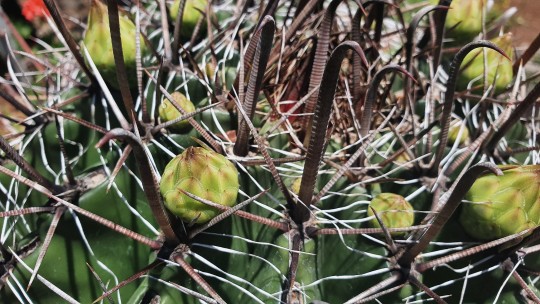
No longer photographing weeds and turf grass, but instead showing you Ferocactus blooms because we're all "under the same sun". Might as well enjoy the beauty while you're at it.
#ferocactus#melobotanics#south africa#plantblr#horticulture#succulents#botany#germination#plantblog#cultivation#propagation#vsco#tumblr#succulents of tumblr#plantsofinstagram#desertplants#cactus#cactiandsucculents#plant aesthetic
45 notes
·
View notes
Text
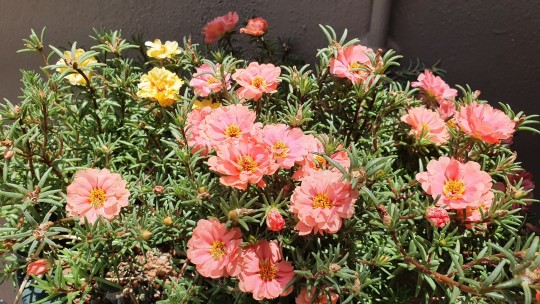
'Portulaca grandiflora' currently overflowing in a pot. Presenting a carpet of happiness.
#melobotanics#southafrica#cactus and succulents#succulentsofinstagram#plantblr#horticulture#botany#germination#plantblog#cultivation#succulents#propagation#plant nursery
41 notes
·
View notes
Text
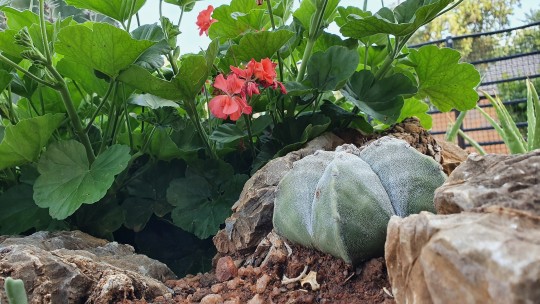
My garden is a strict 'No designer grass' zone. I've been waterwising ever since I saw it was a Pinterest trend.
Featuring above is a beautiful 'Astrophythum myriostigma' and 'n zonal Pelargonium.
#melobotanics#south africa#plantblr#horticulture#succulents#botany#germination#plantblog#cultivation#propagation#pelargonium#geranium#astrophytum#succulentsofinstagram#plantsofinstagram#seeds
16 notes
·
View notes
Text
0 notes
Text
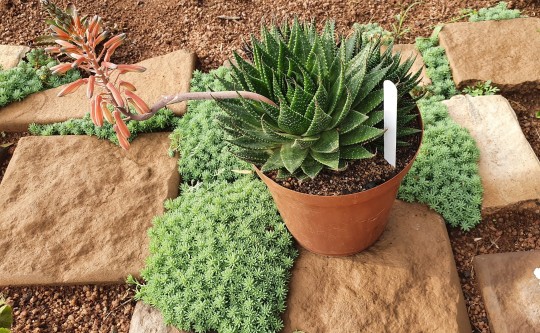
Gasteraloe 'Cosmo'.
This is a beautiful and prolific intergeneric hybrid between an Aloe and Gasteria. Reaching a great size when mature and always producing an impressive amount of offsets and flowers when happy.
#gasteraloe#gasteria#aloe#melobotanics#south africa#plantblr#horticulture#succulents#botany#germination#plantblog#cultivation#propagation#seeds#succulentsofinstagram#plantsofinstagram
13 notes
·
View notes
Text
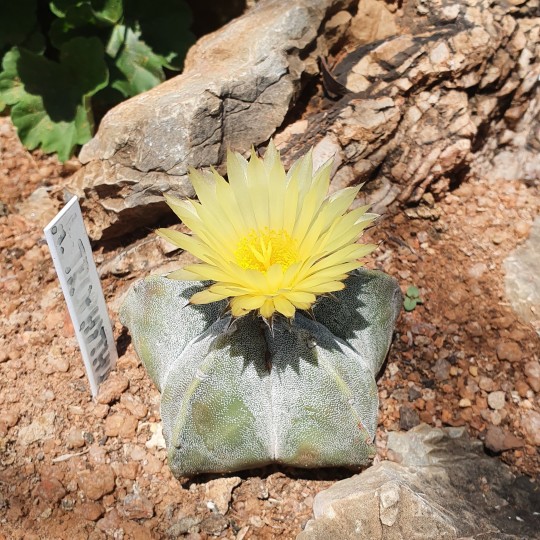
'Astrophytum myriostigma'.
One thing I admire about nature is its resilience. From what I could observe, suffering is good for a garden. It is necessary as it builds some form of resistance towards future happenings. As is suffering for the soul. Not always the most comfortable thing to experience as a person, but highly necessary. Within that uncomfortable nature is a deep calmness, knowing that everything is happening as it should.
#astrophytum#myriostigma#melobotanics#south africa#plantblr#horticulture#succulents#cultivation#propagation#botany#botanicalstudies#germination#seeds#succulentsofinstagram
34 notes
·
View notes
Text

Beautiful 'Portulaca grandiflora' vygies growing in a nearby pot. Easily propagated from stem cuttings and seeds. These were grown from seed for the purpose of future propagation, which makes them even more special. They are also known as Moss roses and do extremely well in dry and very hot conditions.
#melobotanics#south africa#plantblr#horticulture#succulents#portulaca#vygies#botanicalstudies#botany#plantblog#vsco#candide#propagation#seeds#germination#cultivation#plantnursery
17 notes
·
View notes
Text
To all fellow plant lovers, it was amazing sharing the tumblr experience with you. I'll be more active on my other social media counterparts. So be sure to find me there. Happy growing and remember to be patient with your surroundings. Everything worthwhile takes time and effort.
@Melobotanics
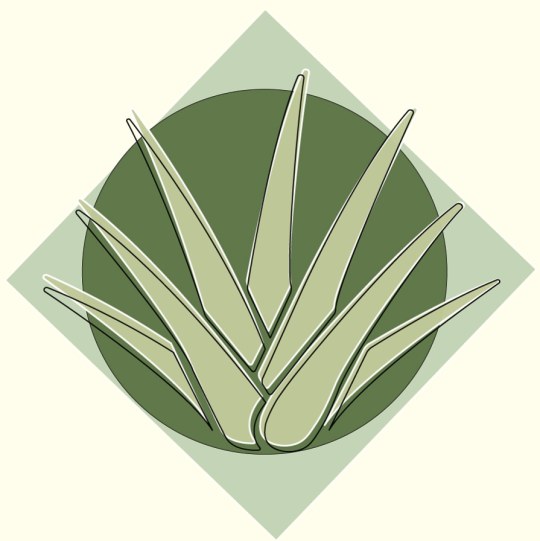
#melobotanics#south africa#desert plants#plantblr#horticulture#succulents#botanicalstudies#botanical science#cultivation
0 notes
Text
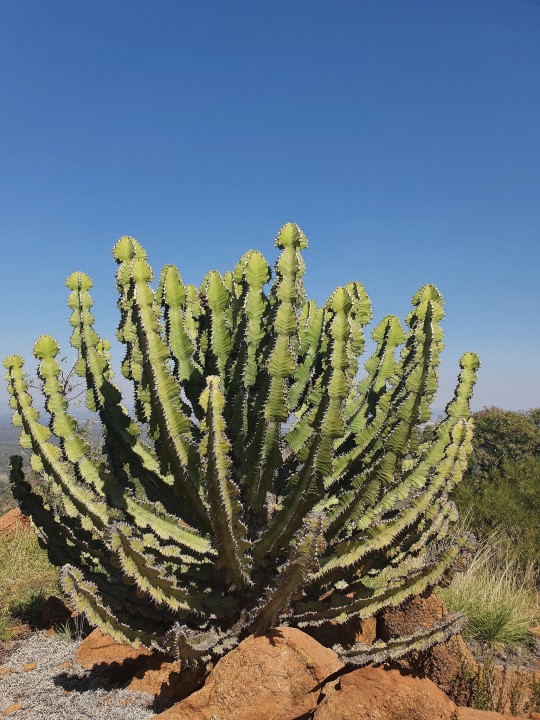
'Euphorbia cooperi' also known as the Transvaal Candelabra, is a succulent tree that is capable of growing up to 10 metres tall. Branches curve upwards and contain bisexual (both male and female) flowers that are clustered along the ridges between the spines.
This is a widespread species usually found on rocky outcrops and semi-arid grasslands. This plant is still considered quite young in succulent terms, and will develop a flat topped crown and woody tree-like stem as it ages.
Euphorbia is a highly diverse genus that contains 2400 species to date - All producing the characteristic white latex sap which is somewhat toxic.
#euphorbia#cooperi#transvaal#candelabra#cyathium#flowers#succulentsofinstagram#succulents of tumblr#plantsofinstagram#plantblr#plantblog#tumblr#vsco#melobotanics#south africa#limpopo#melobotanica#horticulture#botanical studies#botany#seeds#germination#cultivation#nature photography#habitat photography
24 notes
·
View notes
Text
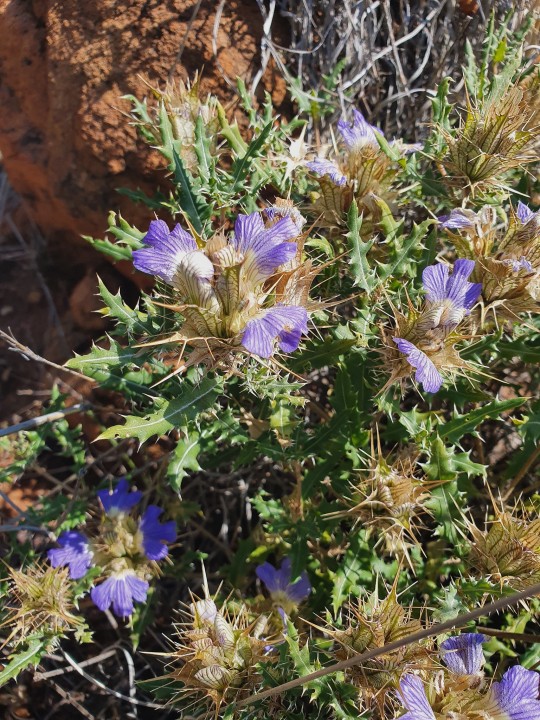
Just weeds eh? Probably what most people will assume when looking at this picture.
This plant belongs to the Blepharis genus in the family Acanthaceae. Note that this genus contains a lot of subgroups and is still being studied intensively under botanists, so proper species identification is difficult. 'Blepharis' compromises of about 129 species found in arid and seasonally dry habitats. These plants have been found to exhibit a wide range of pharmacological activities including anti-oxidant, anti-microbial, anti-inflammatory and cytotoxic activities. Often used by traditional healers as an alternative to conventional medicine by using the bioactive compounds, this plant features qualities much more interesting than the everyday weed.
Don't be biased. Study "weeds" as well as the plants you find in your everyday Plant Nursery.
#blepharis#natalensis#attenuata#asteracanthus#horticulture#botanical studies#botany#habitat photography#melobotanics#south africa#melobotanica#limpopo#plantsofinstagram#datacapturing#acanthaceae#plantblr#plantblog#weedsofinstagram#weeds#plantlife#vsco
8 notes
·
View notes
Text

The swamp paperbark (Melaleuca ericifolia) is a tall dense shrub in the myrtle family, Myrtaceae, and native to South-Eastern Australia. Although it is considered an invasive alien, other relatives such as the 'Melaleuca artenifolia' or Teatree is used in naturally healing soaps.
Melaleuca is an extremely varied genus. There are different types of tea trees, each with its own dramatic variations in needle and blossom sizes. Other plants such as the common Bottlebrush tree (Callistemon Citrinus) belongs to the same family therefor explaining the synonym used by many herbaria today - Melaleuca citrina.
#melaleuca#ericifolia#teatree#myrtle#melaleucaalternifolia#teatreeoil#australia#nativeaustralia#plantsofinstagram#plantblr#plantblog#treesofinstagram#trees#melobotanics#horticulture#botanical science#botanical studies#botany#germination#cultivation#bottlebrushtrees#callistemon#citrinus#melaleuca citrina
9 notes
·
View notes
Text
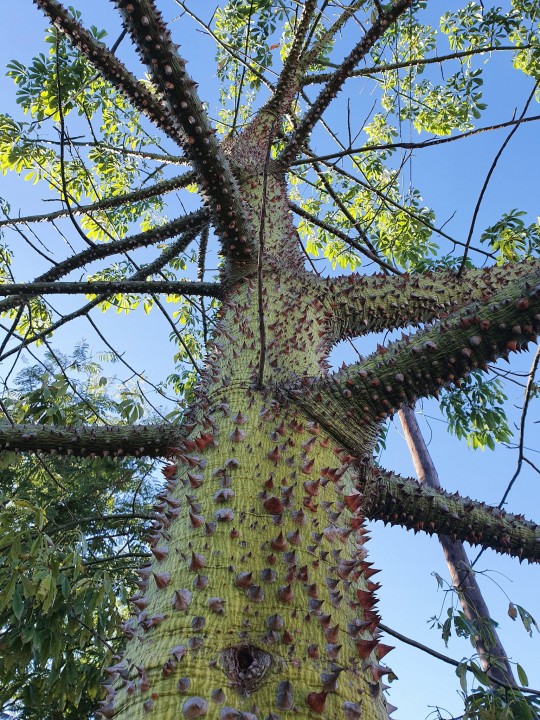
2. The neotropical giant - The Kapoktree or 'Ceiba pentandra' is a tropical tree that belongs to the Malvaceae family, meaning the Hibiscus genus is a close relation. This tree is native to Mexico, Central America and the Carribean, northern South America, and tropical West Africa.
The Kapoktree's main pollinator is bats. The flying mammals are attracted to the foul odor emmited by the pink and white flowers. As the mammals move from flower to flower feasting on the nectar, they transfer pollen on their fur, thus facilitating pollination.
The ancient Maya believed that the Kapok tree was the link between heaven and earth - its branches were pathways for the soul to ascend to the spiritual world.
#kapok tree#ceiba pentandra#melobotanics#south africa#plantblr#horticulture#botany#plant blog#tropical tree#tropical africa#germination#cultivation#propagation
72 notes
·
View notes
Text
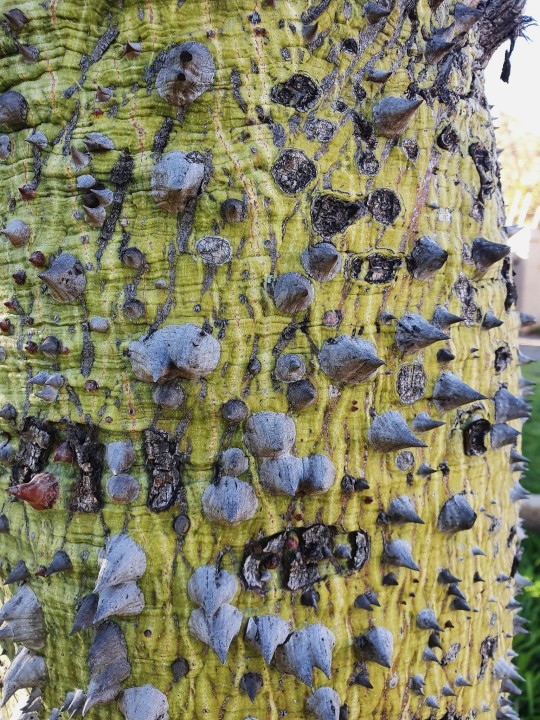
1. Kapok tree (Ceiba pentandra) that I photographed while taking my early-morning walk through the neighborhood. It feels good to have a little less limitation and be able to still enjoy the surrounding plantdiversity. This tree is on the top 5 of my favorite trees.
#kapoktree#kapok boom#ceiba pentandra#tropical africa#west africa#south africa#horticulture#botanical studies#botany#melobotanics#plantblr#plantsofinstagram#propagating plants#germination#propagation
35 notes
·
View notes
Photo

Aloe bruynsii, a miniature aloe species endemic to Madagscar. The first fair-sized Aloe bruynsii colony was discovered near Manambaro in the Fort Dauphin district in Madagascar. It apparently produces pale yellow flowers although my specimens are too young to configure this information. It’s still a relatively new discovered species but it is speculated that it is allied with other species such as Aloe acutissima that occurs in south-western Madagascar.
https://www.instagram.com/p/B_mlKIclAZS/?igshid=6kufw2vcvvzp
#aloe#madagascar#madagascanplants#aloebruynsii#melobotanics#horticulture#botanicalstudies#propagation#cuttings#seeds#germination#southafrica#desertplants#miniaturealoes#succulents#plantsofinstagram#succulentsofinstagram#plantblr#plantblog#tumblr
15 notes
·
View notes
Text
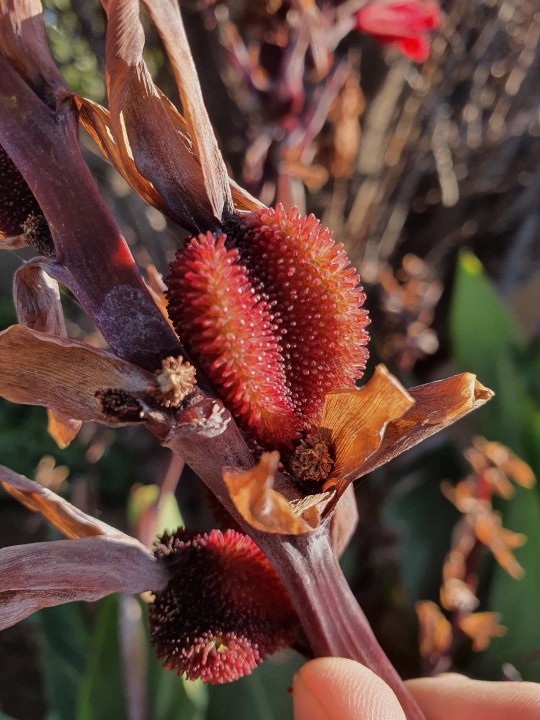
Floral and prolific flower genitalia. Displayed above is the fruits of a red 'Canna indica'. Currently classified as an invasive plant here in South Africa because of its tendency to replace other freshwater plant species and overgrow aquatic spaces. Nontheless, still a magnificent plant to observe.
#flowers#seeds#canna lilies#canna indica#melobotanics#melobotanica#horticulture#botanical studies#south africa#plantblr#plant blog#plant morphology#germination#instagram#cultivation
19 notes
·
View notes